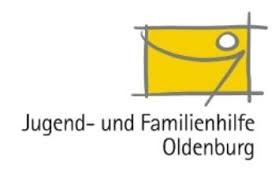IGEL Secure Endpoint OS
for Now and Next
IGEL is a transformative secure endpoint OS designed for SaaS, DaaS, VDI and secure browser environments. IGEL significantly reduces endpoint TCO and your endpoint attack surface.


Jugend- und Familienhilfe Oldenburg provide a variety of services and support in everyday life for children, adolescents and young adults. In order to successfully and efficiently deliver these services, their computer environment had to be re-designed.
IT problems had cost the 100 employees across 7 sites in Oldenburg and Westerstede a huge amount of lost time until 2012. The management team decided that a permanent resolution was needed and decided to standardize the IT environment at the end of the year. “When I took up my new position, I discovered a highly heterogeneous working environment which required a considerable amount of administration,” recalled Managing Director Cordula Breitenfeldt. “The different hardware and software in use at workstations regularly led to considerable delays. Data storage and site networking in particular were in need of improvement.”
The Linux server at the administrative headquarters was used as a shared storage location, but could not be accessed reliably from external sites, resulting in users locally saving documents to the 25 shared PCs. Data security was threatened by USB sticks used to transfer data between sites. “Given the large number of storage locations and media, searching for specific documents was very time-consuming,” said Cordula Breitenfeldt. “On top of this, computer viruses and Trojan horses posed a permanent security threat.” The fact that users used various versions of word processing and other office programs also led to delays when working. There was even a mixture of different printers and fax machines as well as PC hardware.
Through her background in public administration, Cordula Breitenfeldt was aware of the importance of standardized IT for staff productivity. After a series of dicussions and analysis, the route was decided. In order to allow standardized and secure computer work – regardless of location – in the most cost-effective way possible, IT should be gradually outsourced to the cloud. The first step involved outsourcing the operation of Outlook to a service provider based in Bremen. From here, the program was provided via browser using OWA (Outlook Web Access) regardless of device types. A new external IT administrator was then enlisted to plug the biggest security gaps and improve access to the file server. In 2013, the 25 old PC systems were replaced by standardized workstation computers with Windows 7 and Microsoft Office 2010. However, the PCs soon revealed a major weakness in conjunction with the forthcoming cloud use.
The not-for-profit organization chose a service provider from Bremen as a cloud provider. The advantages of the SaaS (Software as a Service) delivery model, where all applications required are provided via the Internet in exchange for a monthly fee, are obvious. All data are now stored centrally, available for any location and are backed up regularly and automatically. The printers are also managed via the cloud. Servers and applications are updated by the cloud provider as part of the package. A 100 MBit/s line to the headquarters provides a high-performance, reliable connection, while the external sites are connected via VDSL with at least 6 MBit/s. For cost reasons, the shared workstation scheme was also applied to cloud use and the license package was limited to 25 users. To ensure that this limitation is enforced, the provider automatically logs off the user from the server every 60 minutes.
Although this auto logoff makes sense from the point of view of licensing costs, it proved cumbersome for users at the beginning. “With Windows 7, every new logon to the cloud required a reboot,” said Christoph Molitor, who, as an external service provider, oversees the IT workstations for Jugend- und Familienhilfe Oldenburg. “Typically, this annoying phenomenon would occur after a long telephone call when a number of users wanted to work on a PC after each other at the start of the working day. In order to avoid this type of interruption, the administrator was on the lookout for an alternative operating system, ideally one which is leaner and geared to accessing cloud services.
Christoph Molitor found what he was looking for with IGEL Technology. Based in Bremen, the German market leader for thin and zero clients also markets its lean IGEL Linux thin client operating system on its own. The IGEL Universal Desktop Converter 2 (UDC2) can be installed on x86-compatible PC and notebook hardware and supports, among other things, the RDP (Remote Desktop Protocol) cloud access protocol which is needed in this case. “With this solution, the user is taken back to the local IGEL Linux desktop after an auto logoff and can log on again immediately,” said the IT service provider, explaining the key benefit of the software thin clients. The alternative operating system also had other positive effects which have helped to increase productivity. During so-called session roaming, staff can interrupt their work whenever they want and then continue it immediately at another location after a brief logon procedure. The booting time has also been reduced from several minutes to just a few seconds.
Thanks to this simple and efficient workplace solution, users are now even more flexible in terms of their location when working and can find themselves a particularly quiet office when writing a report for example. With consistent data storage, exchanging data using USB sticks is no longer necessary. To further increase data security, it is no longer possible to store application files locally on the converted PCs. According to Christoph Molitor, the reliability of the workplaces has improved too. “The IGEL operating system is very stable, requires virtually no maintenance and hardly ever needs to be updated. The Linux-based software thin clients also require no antivirus programs which would need to be updated.”
With the exception of one member of staff who uses a PC with a connected scanner, the software thin clients from IGEL are now standard. In order to convert the previous office PCs, Christoph Molitor used an installation CD that he burned himself (one of four possible methods) which also contained a directory with the IGEL UDC2 licenses. The administrator gave the manufacturer the associated MAC addresses of the PCs in advance so that the licenses could be allocated immediately during the installation. All Christoph Molitor then needed to do was to enter details of the connection type and the IP address of the cloud provider via the IGEL setup. The entire procedure took less than ten minutes and within two days all sites Visit us online at igel.com IGEL is a registered trademark of IGEL Technology GmbH. All hardware and software names are registered trademarks of the respective manufacturers. Errors and omissions excepted. Subject to change without notice. © 12/2017 IGEL I 85-EN-24-1 I WEEE-Reg.-Nr. DE 79295479 I WEEE-Reg.-No. UK 5613471 had made the switchover. “Thanks to the high level of hardware compatibility, the switchover worked straight away,” said Christoph Molitor. “The software thin clients are running trouble-free to this day.”
Cordula Breitenfeldt too is very pleased with the new solution. “Our staff enjoy working with the software thin clients,” said the Managing Director.